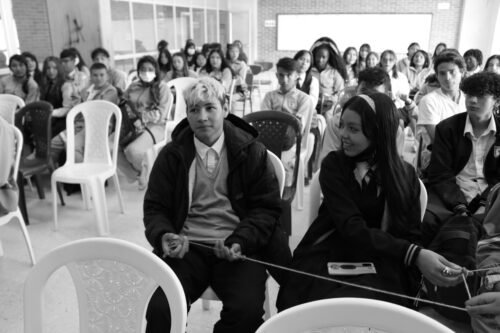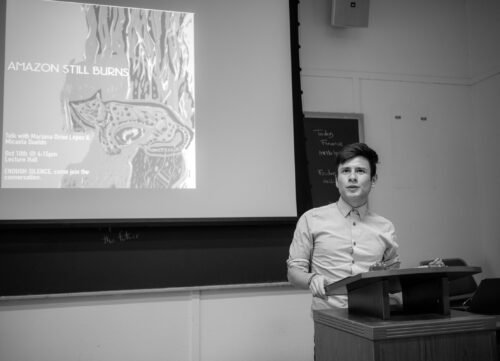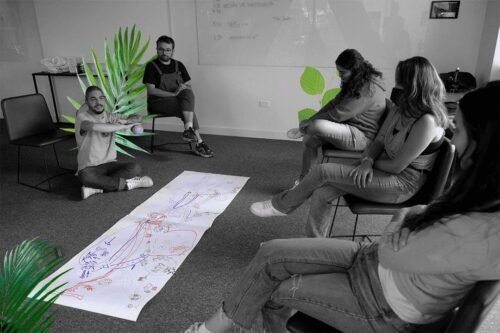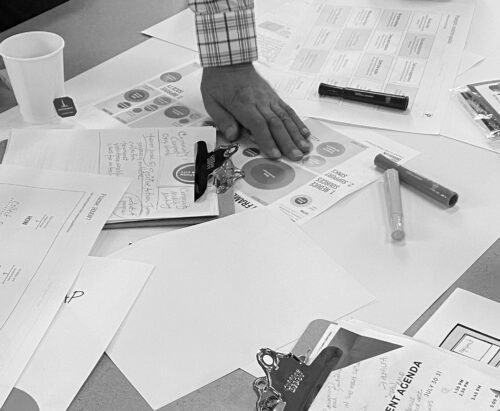
Como con Eco is a program that aims to provide college students with the tools to develop resilient food systems in their communities and environments. The project focuses on the present and the future, and on college students from 14 to 18 years old so that they are the ones who live and lead the changes that our planet needs.
The new skills and knowledge they acquire will allow them to carry out actions that can have an immediate impact on their surroundings from an environmental perspective. Changes are starting to happen, and As with Eco , developed by 2811 and Ean University , it aims to boost and speed them up.
food systems they are an essential part of our lives and the future of our planet. That is why it is important that young people have the tools to work for a more sustainable future .
From Como con Eco we want to promote them, but then: why are resilient food systems important for youth? And how can something done from school classrooms have a big impact in homes, neighborhoods and communities?
Let them, the students who are participating in Como con Eco, answer us:
"Food is not recognized for its value"

“Food is not recognized for its value, but for its price. You look at how much they are worth but not the process behind them. It is important to recognize the process to take into account and value the food, not to waste it, both the prepared ones and the expired ones, which can be used in one way or another. I want to leave a contribution in the community, at the local level and if possible even more”, said Laura Daniela Montoya, a student at the Kimy Pernía School in Bogotá, Colombia.
The importance of resilient food systems is that they improve and optimize existing processes on food production and distribution, and focus on health over profit. A great feature of these systems is that they do not treat food as a business, but as a basic human need.
“I was struck by how we did the activities and the explanation they gave us. I like having something to do with the environment and I find it interesting to know how food is brought home or to school, home, where it comes from, how it is produced”, explained Miguel Ángel Bonilla, a 14-year-old student.
To be able to be agents of change in the present and in the future

Another student who expressed his opinion about resilient food systems was Julián Bermeo, from the Delia Zapata school in Bogotá: “ With this experience the whole school can learn and reflect on the things we are doing or not doing in relation to healthy eating and caring for the environment. We can also raise awareness about caring for water.”
For systemic changes to start happening and not stop, those who execute them need to be oriented towards the future. We could perceive this orientation in the students who have participated in the space of co-creation of Como with Eco.
“I am interested in participating in an environmental project because I think I can do something more for this society, not only as a person but also by helping the environment. We must know where food comes from, who grows it and how. We must know this for our own good,” said Carlos Barbosa, from the Kimy Pernía School.
“It is important to know where food comes from because it is what we eat every day, and if we have no idea what we are eating, we do not know what we are doing for our body. It is important to do these projects because it encourages young people to take leadership to do very important things”, Jaren Sofía Rodríguez told us.
The needs of our planet are the needs of our future as a species, and a healthy and coherent diet is the protagonist in any encouraging scenario of this future. The fact that there may be students at the forefront of new proposals for power systems offers us an optimistic view.
Related Posts
“Sustainability speaks of a future, regeneration invites us to recognize the past”
Felipe Fontecilla spoke to us about his perspectives and opinions in his early days as director of Acción Climática in [...]
Read moreFood resilience: an action against climate change
Resilience invites us to consider how we obtain food and how we use it to feed ourselves.
Read moreGreen practices to make your company more environmentally friendly
Sustainability and green practices are all the rage today. Why then not take advantage of this with your company?
Read more


